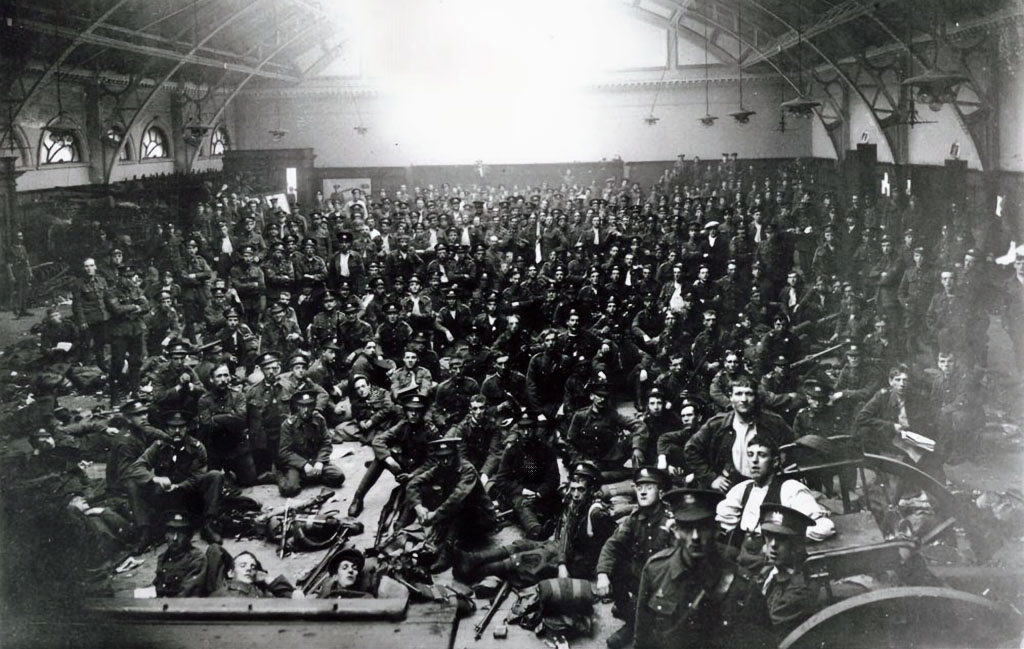Wigan Drill Hall Memorial
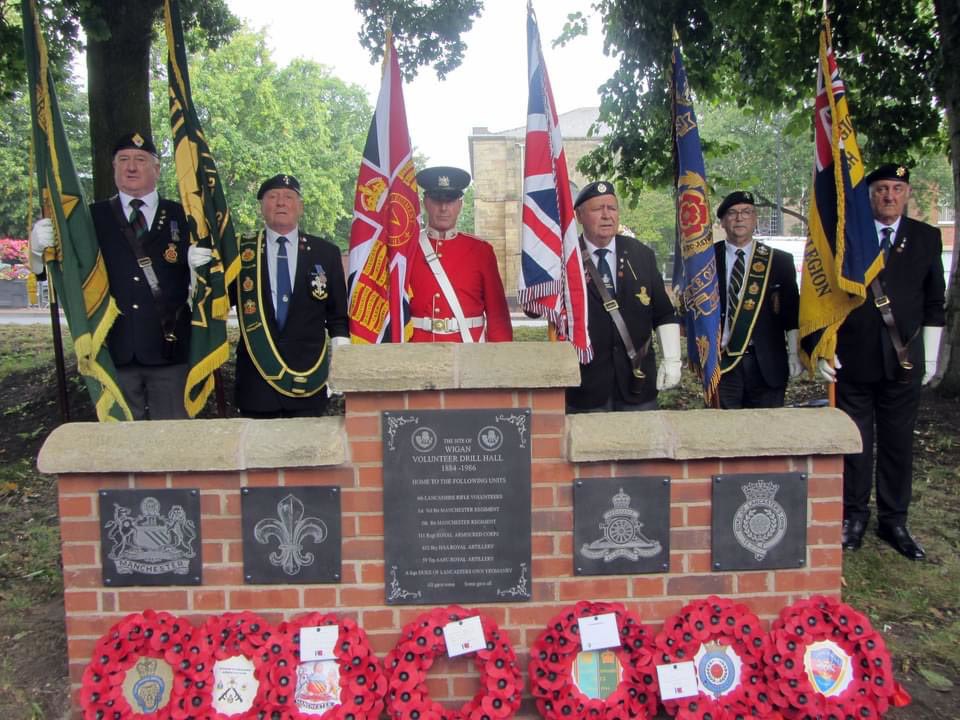
Wigan now has a permanent memorial to all the units who used to volunteer at the Wigan Drill Hall, Powell Street. This is thanks to the hard work and perseverance of a group of people, including Dave Myers, Graham Taylor, Deborah Pugh, Gillian Burchall and Billy Finch, over the last two years. The Drill Hall was demolished in 1986 to make way for a road widening scheme and the new memorial has been built using bricks which are very similar to the ones used in the old Drill Hall.
On 22nd August 2024 the Mayor of Wigan, Councillor Debbie Parkinson, led a procession through the town to the site of the new memorial for its official dedication and unveiling. Graham Taylor opened the proceedings with a speech about the history of the Drill Hall and the long journey made to the erecting of the new memorial. He thanked Wigan Council Building Department and Planning Department and also Wigan Council’s Armed Forces Department for their commitment and hard work which ensured the building of the memorial.
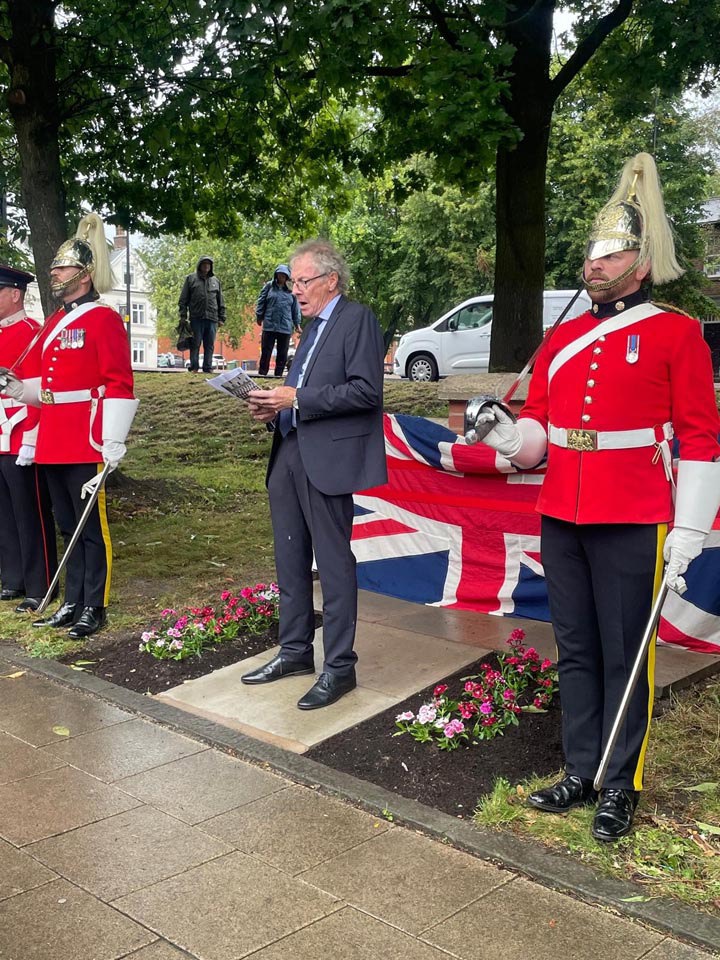
There followed a speech by Hugh Darlington, the grandson of Sir Henry Clayton Darlington, former commanding Officer of the 5th Battalion Manchester Regiment, in which he spoke about his family’s connections with the Drill Hall and the 5th Manchester Battalion. After a short service and prayers, led by Rev Roland Harvey, the bugler played the last post and reveille. The memorial was then officially unveiled by the High Sheriff of Greater Manchester, Dr Eamonn O’Neal DL, and Hugh Darlington. Several wreaths were then laid, including ones by the Mayor, Margaret Carter on behalf of the Gallipoli Association and Larry McCarthy on behalf of The 5th Manchester Regiment Association.
The twelve panels dedicated to the men of the Manchester Regiment at the Helles Memorial list over 1,200 names of those whose bodies were never found. There are also many graves of soldiers from the Manchester Regiment in some of the Commonwealth War Graves cemeteries in Gallipoli.
It is good to see that these men are not forgotten and that there is a tremendous amount of local pride in the men of the Manchesters who fought so valiantly in Gallipoli, and other theatres of the Great War.
Photographs
Photographs by Deborah Pugh of the 5th Manchester Regiment Association – Living Museum, who kindly gave us permission to reproduce these images of the ceremony.
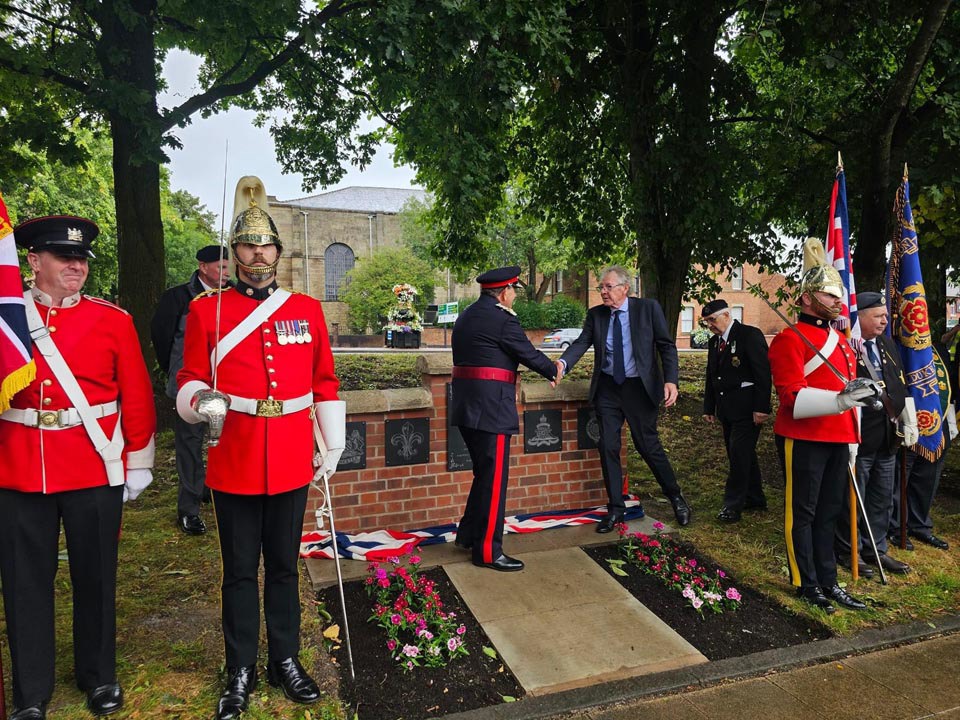
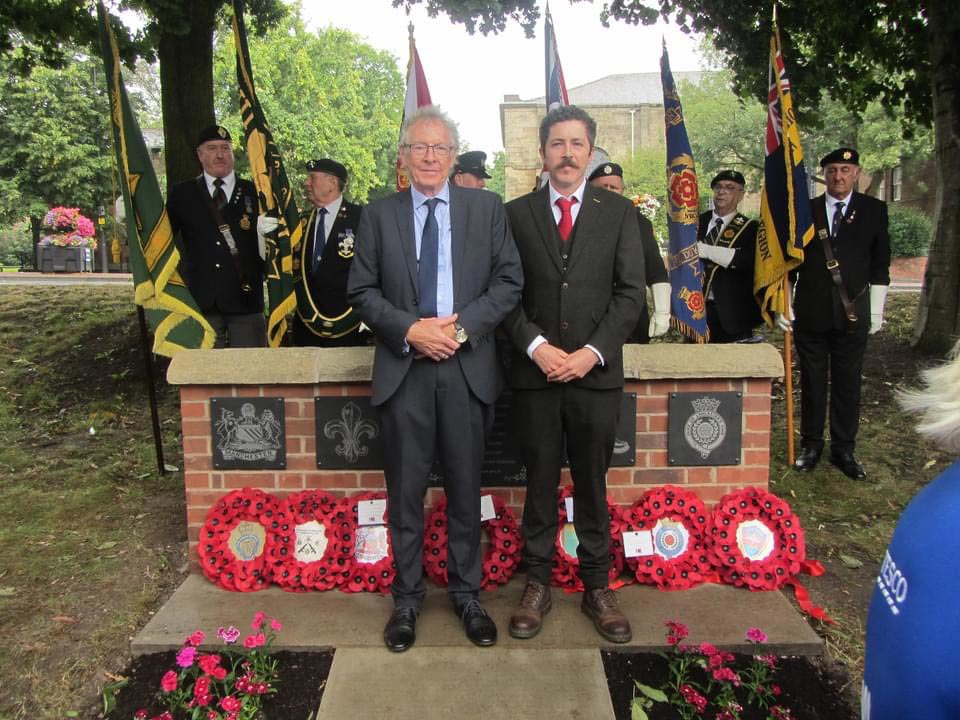
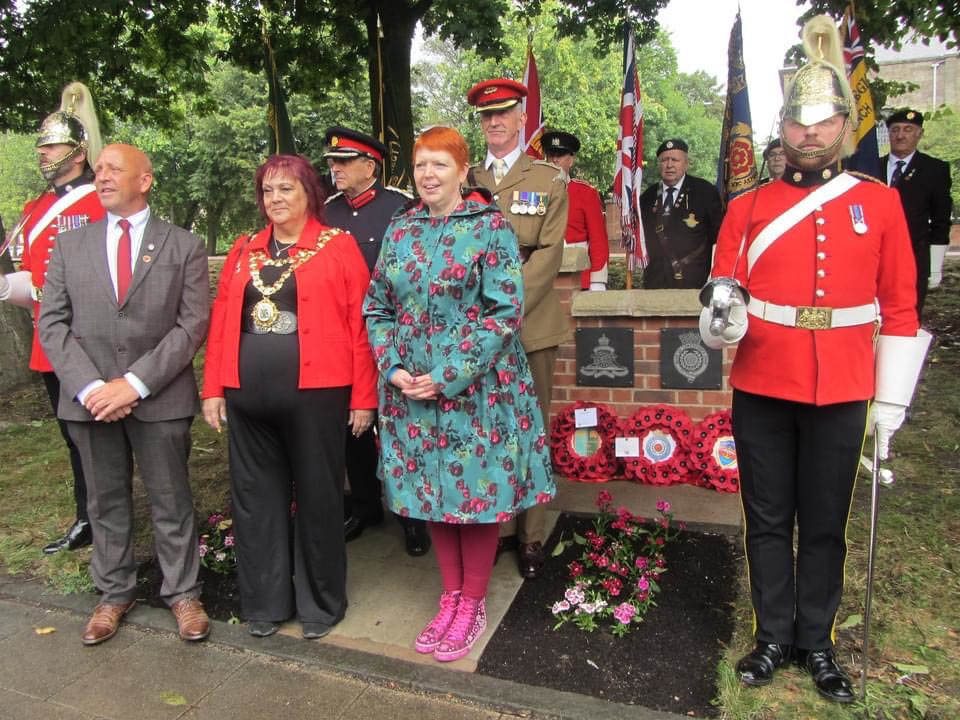
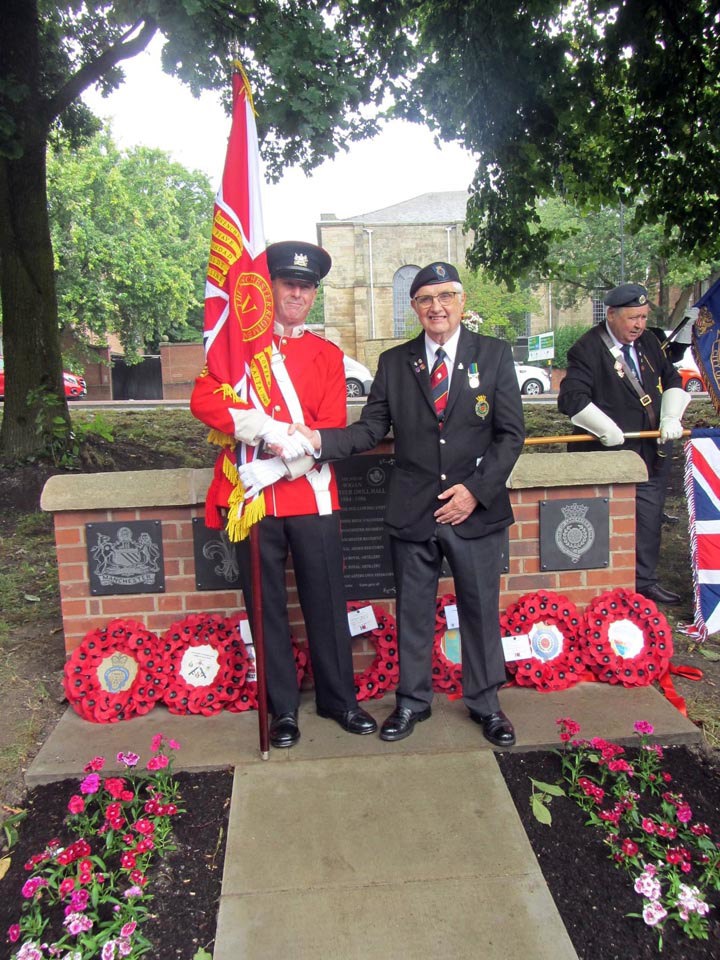
|
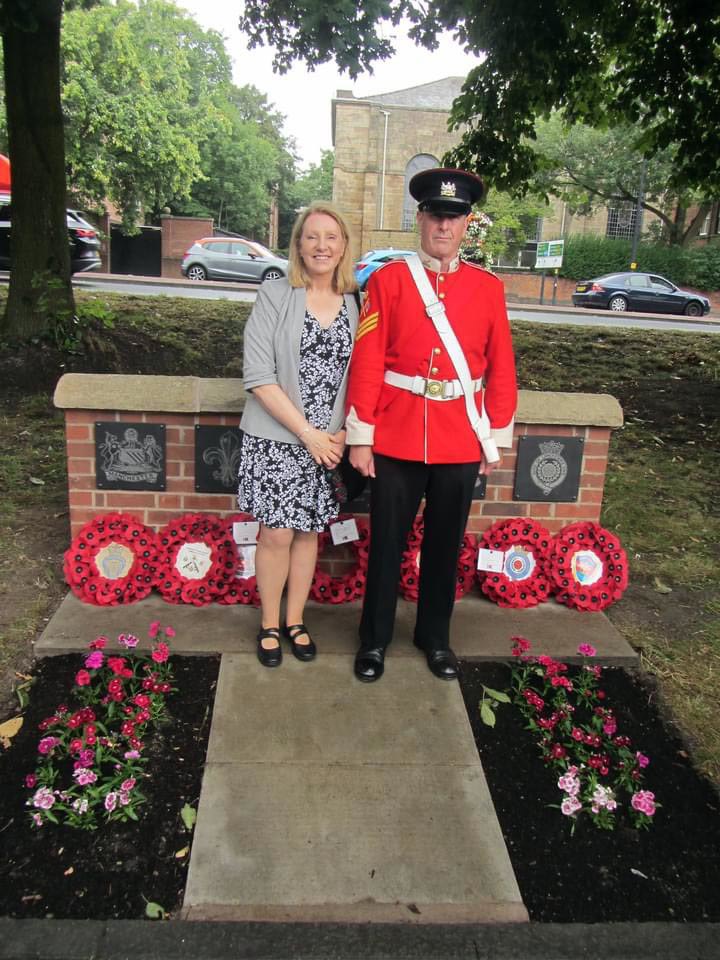
|
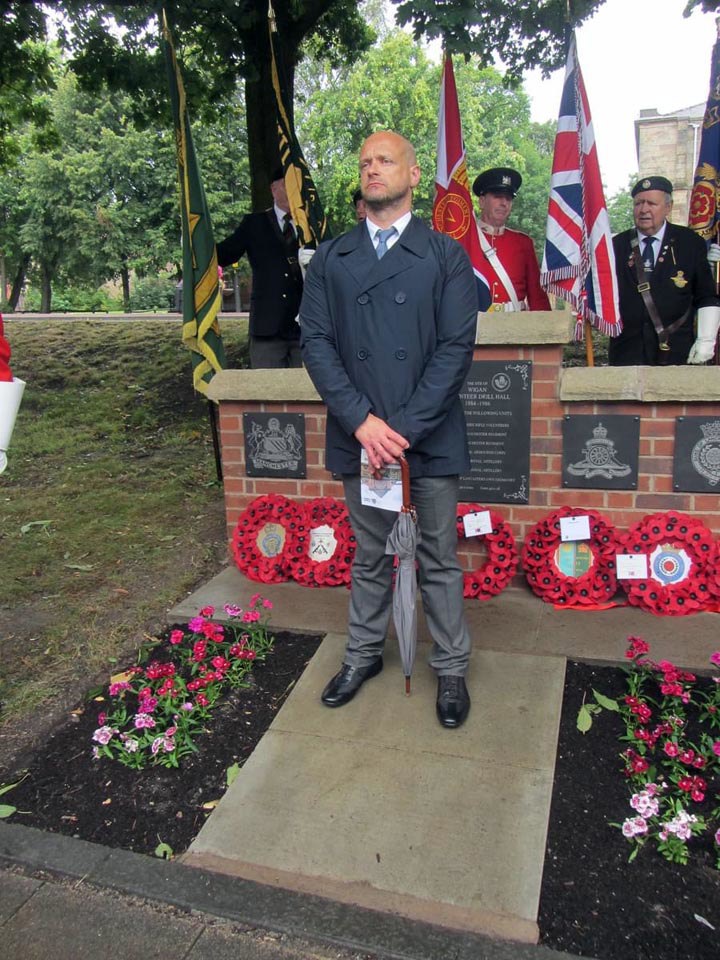
|
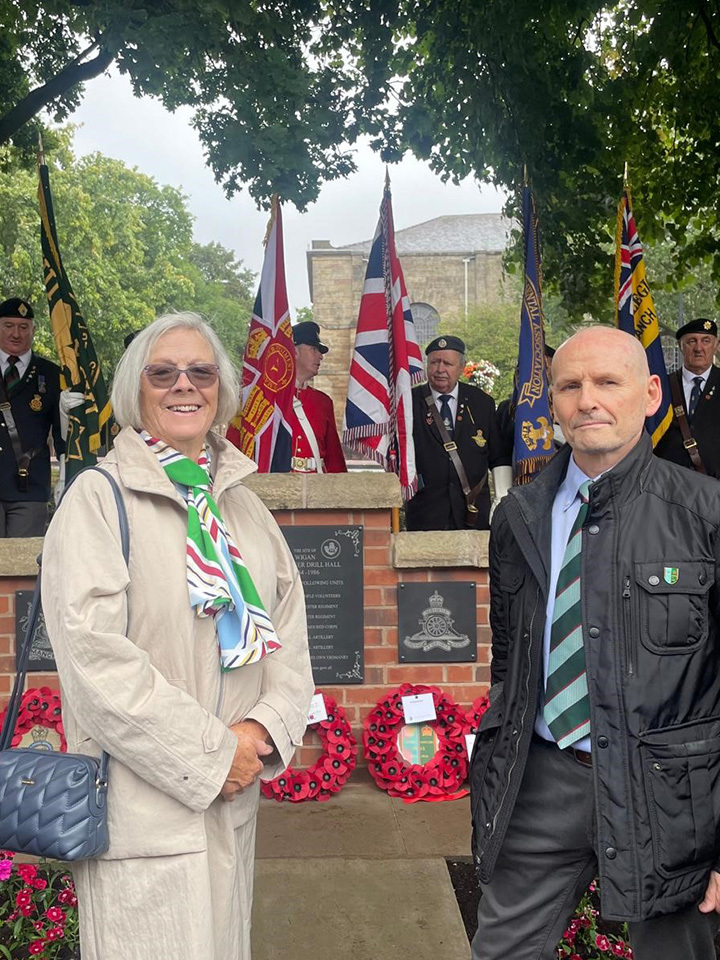
|
Speech made by Hugh Darlington
Wigan Volunteer Drill Hall Memorial Unveiling – 22 August 2024
Thank you, Graham.
Madam Mayor, High Sherrif, Honoured Guests, Veterans, Ladies and Gentlemen, I am honoured to be here today, but the honour is due to my ancestors.
Like Graham, my family were deeply rooted in Wigan and in soldiering.
My great-great grandfather, Ralph Darlington was Mayor of Wigan in 1849 and 1850, and was an Alderman when the Wigan Volunteer Drill Hall was erected.
I feel certain that he would have been present at the opening of the hall together with his son Henry (my Great Grandfather) who had joined the 21st Lancashire Volunteer Regiment ten years earlier in August 1874.
Henry was to become heavily involved with the 4th Lancashire Rifle Brigade and then with the 1st Volunteer Battalion and by the time he achieved the rank of Colonel had completed thirty years’ service.
Henry’s sons Jack and Henry Clayton both became involved with the 1st Volunteer Battalion.
Jack, his youngest son, was born four days after the Drill Hall opened. He was to go on to become a professional soldier, enlisting with the Light Infantry in India where he died before the Great War.
We now come to his eldest son, (my grandfather), Henry Clayton Darlington.
Henry had wanted to become an officer but when he left school was unable to raise the cost of a commission. Instead, he joined the 1st Volunteer Battalion as a 2nd Lieutenant in April 1897.
In February 1900 he answered the call for volunteers for South Africa and went out as the Lieutenant in charge of Wigan’s 1st Volunteer Battalion. The Wigan men went out via Cape Town and joined the 1st Manchester Regiment at Caesar’s Camp, just outside Ladysmith.
They were engaged in fighting on numerous occasions including action at the Battle of Belfast and did not return until May 1901.
On 4th August 1914 war was declared. On the 22 August 1914, one hundred and ten years ago today, a photograph was taken outside the doors of the Wigan Drill Hall. It shows the six senior officers including Colonel France and my grandfather Major Henry Clayton Darlington.
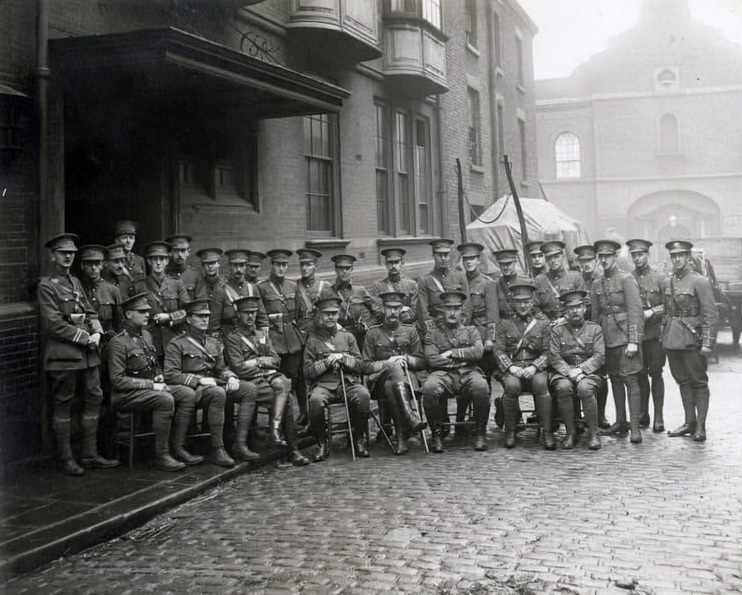
For reasons unknown, Colonel France was unable to sign up for overseas service and it was my grandfather who was asked to take the Wigan men out to Alexandria where they were trained up prior to landing in Gallipoli in 1915.
The rest, as they say, is history.
My grandfather always held his men and officers in high regard.
Both in the introduction to his book, “Letters from Helles”, and in his speech upon returning with the Cadre of the 5th Manchesters in February 1919, he sang the praises of the men who had been with him in Egypt, Gallipoli, France and Belgium.
The Wigan Volunteer Drill Hall is deeply ingrained in my family’s history, and I am extremely pleased that Graham Taylor and Dave Myers proposed this fitting memorial to all those that served here.
Thank you.
Hugh Darlington, Wigan 22 August 2024
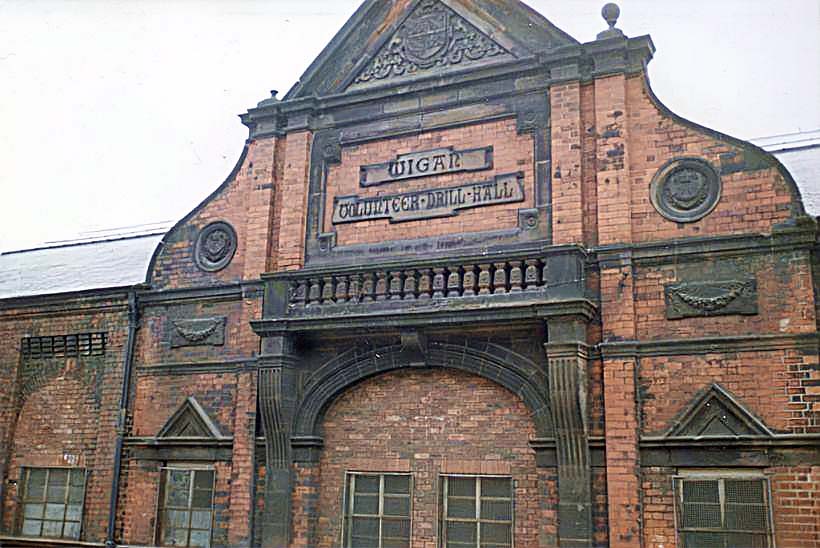
Wigan Drill Hall
The memorial remembers all units who were resident at the old Wigan Drill Hall.
The 5th Manchester Regimental Association was formed to preserve the memory of Wigan’s Wartime Territorial Battalion. The Regiment was known locally as the Collier or Pit Man Battalion and had its headquarters in Wigan from 1861 when it was formed as the 21st Lancashire Rifle Volunteers.
The Territorial Force established in 1908 replaced existing Local Volunteer and Militia Units. The Manchester Regiment was part of the East Lancashire Division. Each regiment had fourteen Battalions of approximately one thousand men, the Wigan Battalion being the 5th.
Graham Taylor has written a short history of Wigan Volunteer Drill Hall for Wigan Local History & Heritage Society website (part of Wigan Building Preservation Trust).
